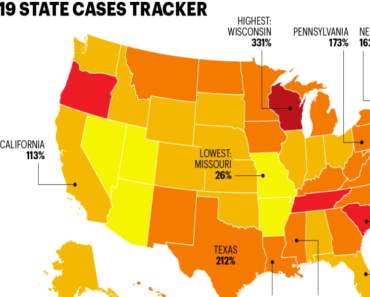This post was originally published on this site
https://fortune.com/img-assets/wp-content/uploads/2024/05/GettyImages-1501388575-e1715284440460.jpg?w=2048
Family pictures are set to look a bit less crowded these days. And it might be time to wave goodbye to the era of Brady Bunches, as young adults slim down on the nuclear family prototype in favor of having one child.
Economic straits, the surging cost of raising a kid, and the deepening childcare crisis have all made a dent in America’s birth rate. Struggling to afford to put a roof over their own heads, a cohort of millennials have delayed or opted out of expanding their households. Despite a potential delay due to struggles in wealth building, most (80%) millennials are projected by lifestyle brand Motherly to become parents within the next decade.
Now, early data is coming through about our next generation of family makers: Gen Zers who have been passed the baton (or rattle) of parenthood, and all the rising costs that come with it. Dealt a difficult hand, the oldest parents in this generation are shaping up to have their own take on family building which involves, well, building less, according to a survey of about 5,500 mothers by Motherly.
Mothers under 30 are around half as likely to plan on having another kid than their millennial counterparts were when they were around the same age, at 31% and 65%, respectively. “A Gen Z mom who has a child right now is significantly less likely to plan to have more children,” Jill Koziol, CEO of Motherly, tells Fortune, citing a major reason as “the inability to make it work financially.”
A third of younger mothers say trying to balance work with inadequate child support drives their choice in not having more kids. Student debt and low wages—two particularly thorny issues for young women—as well as the high costs of childcare, housing, and other milestones, contribute to this feeling of not wanting more children, Koziol says.
Finding affordable childcare in America is a difficult feat, and the burden of said failures is often placed upon women due to gendered labor divisions and the pay gap. The financial and mental burden of finding care led to two-thirds of mothers—including a whopping 82% of Gen Zers— considering leaving the workforce entirely, according to Motherly. Earlier in their careers, Gen Zers are more vulnerable and therefore more susceptible to childcare woes. They’re also less likely than their millennial counterparts to have flexibility and paid leave, both of which have shown to ease the strain of being a working mother.
“This is a highly educated cohort of our economy. It is a business imperative that we find ways to get mothers in the workforce,” says Koziol, explaining that this stands to become a larger economic issue. Despite a growing trend of young moms re-entering the workforce, there’s a structural lack of support on a federal and workplace level. “They’re hanging on by a thread,” Koziol adds.
Struggling to juggle it all, young mothers aren’t looking to have another ball, or child thrown into their hands. Smaller families means “this is just a moment in time. It’s just five years of their life versus 15 years of their life of needing to have childcare before their kids have government support through public education,” explains Koziol. They’re also influenced by socio-economic turmoil and climate change. Gen Zers are more prone to point to environmental concerns and the general state of the world than older generations,.
Those who do have children are forced to be dependent on intergenerational help: 27% of moms receive regular financial support from their parents, and that figure rises to 49% for mothers over 30.
“If our if our generation of parents don’t feel that they can adequately support the next generation, something is broken in our system,” says Koziol, adding the “baby boomer generation exploited the economy and financialized it—and there is so much wealth that has been held at that age demographic.” The dangling wealth transfer is both a testament to a “broken part of capitalism” but also a potential reinvigoration of the village in what could be the beginnings of a potential win,” she adds.
Of course, that hinges on parents getting a helping hand from the government and their workplace. And our graying nation can’t afford to neglect its mothers.
“If we don’t find a way to support universal childcare, and make it affordable, accessible and high quality, and we don’t figure out how to address the student debt in this country that is suffocating individuals and families then we will see lower family formation,” Koizol says. So while women may not be able to afford leaving the workforce, they will be choosing to have fewer children—”and that is just the beginning of a really dangerous cycle,” she says.





